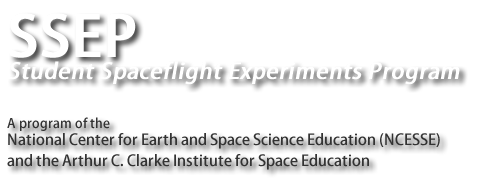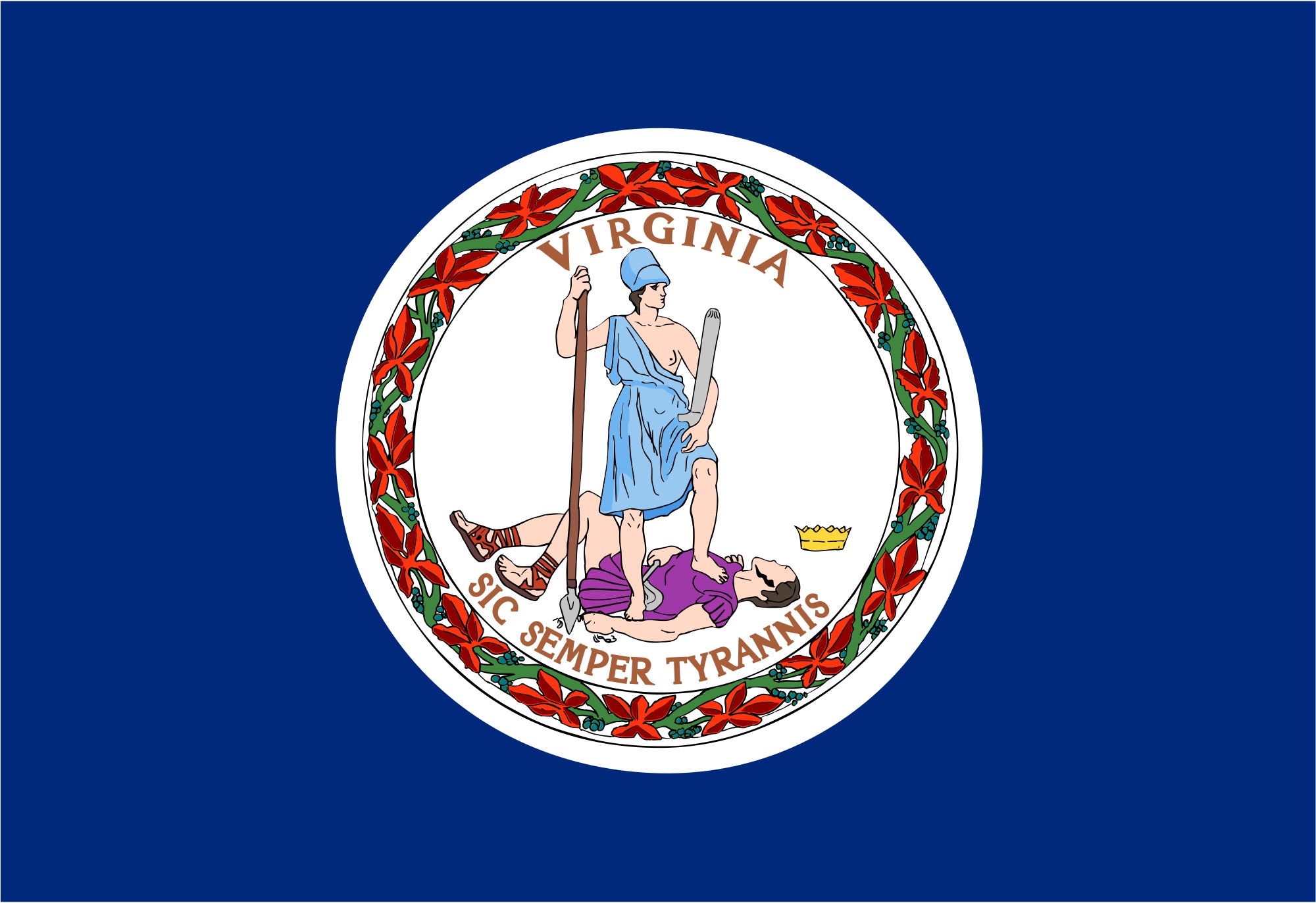The Honorable J. Jack Kennedy, Jr., Clerk of the Circuit Court of Wise County in the City of Norton, VA, who was instrumental in bringing the Student Spaceflight Experiments Program to Virginia’s Russell County (Mission 2 to ISS) and Wise County (Mission 3 to ISS) provided the following exciting news–
“The 2013 Virginia General Assembly passed the Russell County Public Schools commending resolution last month. The House passed the measure on Aerospace Day at the legislature.”
The full resolution as passed by the General Assembly is reprinted below, and recognizes the hard work and accomplishments of Russell County Public School’s students, teachers, administrators, and business and civic organizations.
Read about Russell County’s Selected Flight Experiment and Honorable Mention Experiments
The National Center for Earth and Space Science Education would like to invite all communities particating in the Student Spaceflight Experiments Program to think about putting forth a resolution to honor and recognize their participation. It might be a resolution before your school board, town council, city council, or state. SSEP Community Program Directors interested in receiving a template for a resolution, can contact Stacy Hamel, NCESSE’s Flight Operations Manager.
13104841D
HOUSE JOINT RESOLUTION NO. 829
Offered February 4, 2013
Commending Russell County Public Schools.
———-
Patrons– Johnson and Morefield; Senator: Puckett
———-
WHEREAS, the National Center for Earth and Space Science Education, in strategic partnership with NanoRacks, LLC, launched the Student Spaceflight Experiments Program (SSEP) in June 2010, as a United States National Science, Technology, Engineering, and Mathematics (STEM) education program meant to inspire America’s next generation of scientists and engineers; and
WHEREAS, the SSEP provides a participating school district with their own space program, by providing a flight-certified, microgravity research mini-laboratory and all launch services to transport a single experiment contained in the mini-lab to low earth orbit, first on the final two flights of the United States Space Shuttle Program, and then to the International Space Station (ISS)—America’s newest National Laboratory; and
WHEREAS, Russell County Public Schools, through significant planning, applied for and was accepted in SSEP Mission 2 to the International Space Station—just one of 12 communities across the United States with this distinct honor, and the first community in this great Commonwealth to participate; and
WHEREAS, Russell County engaged 81 students in grades five through 12 in every facet of microgravity experiment design and proposal writing in Winter/Spring 2012, and secured 25 flight experiment proposals from student research teams; and
WHEREAS, 531 Russell County students took part in a mission patch design competition that resulted in 531 submitted patches, and two of these were selected to accompany Russell County’s flight experiment to orbit; and
WHEREAS, Russell County forwarded the following three finalist flight experiment proposals to the SSEP National Step 2 Review Board meeting held at the Smithsonian National Air and Space Museum on May 22-24, 2012:
The Rate of Oxidation in a Microgravity Environment
Grades 10 – 11, Lebanon High School
Co-Principal Investigators: Diana Odhiambo, Donna Odhiambo, Jacob Akers, and McKenna Collins
Teacher Facilitator: Jane H. Carter, Chemistry Teacher;
The Effects of Zero-Gravity on Stain Remover
Grade 8, Lebanon High School
Principal Investigator: Xena Breeding
Co-Investigators: Christian Amos, Matthew Looney, and Matthew Mowrey
Teacher Facilitator: Jani Purtee, Teacher;
Sea Monkey See, Sea Monkey Do!
Grade 7, Castlewood Elementary
Principal Investigator: Allison Skeens
Co-Investigator: Haley Duty
Collaborators: Grayson Wright and Lexi Monk
Teacher Facilitator: Mitzi Johnson, STEM Teacher; and
WHEREAS, the SSEP Step 2 Review Board chose The Rate of Oxidation in a Microgravity Environment as the Russell County flight experiment, which then underwent and passed formal flight safety review at NASA Johnson Space Center’s office of toxicology; and
WHEREAS, Russell County’s flight experiment was integrated into the Mission 2 to ISS Antares Payload, and was launched to the International Space Station at 8:35 p.m. ET, October 7, 2012, aboard the historic flight of SpaceX-1, the flight of the Dragon; and
WHEREAS, Russell County’s flight experiment was conducted by Station Commander Sunita Williams, and was returned to earth and to the student flight experiment team by way of the Soyuz (TMA-05M) 31S vehicle, which de-orbited from the International Space Station on November 19, 2012; and
WHEREAS, microgravity researchers and future doctors, Odhiambo, Odhiambo, Akers, and Collins, are now in the process of analyzing their experiment, and will report results at the Smithsonian National Air and Space Museum in July 2013 as participants in the 3rd Annual SSEP National Conference; and
WHEREAS, Russell County Public Schools’ involvement in Mission 4, under the unwavering leadership of SSEP Community Program Co-Directors Jane Carter and Scotty Fletcher, and the capable oversight of student engagement provided by the school district’s SSEP local team of teachers and administrators, have truly shown Virginia’s next generation of scientists and engineers a pathway to the stars; and
WHEREAS, the Russell County greater community of businesses, organizations, and parents made this extraordinary, real world—in fact out of this world—adventure in Science, Technology, Engineering, and Mathematics (STEM) education possible; and
WHEREAS, other communities across this great Commonwealth also have the opportunity to take part in future missions of the Student Spaceflight Experiments Program, for this continuing adventure beyond the confines of our world powerfully demonstrates how humans push the frontiers of understanding and inspire the explorer in children; now, therefore, be it
RESOLVED by the House of Delegates, the Senate concurring, That the General Assembly hereby commend Russell County Public Schools on its successful science experiment placed aboard the International Space Station; and, be it
RESOLVED FURTHER, That the Clerk of the House of Delegates prepare a copy of this resolution for presentation to the Russell County Public Schools, and to all involved businesses, as an expression of the General Assembly’s immense pride in what this community has accomplished.
The Student Spaceflight Experiments Program (SSEP) is a program of the National Center for Earth and Space Science Education (NCESSE) in the U.S., and the Arthur C. Clarke Institute for Space Education internationally. It is enabled through a strategic partnership with NanoRacks LLC, working with NASA under a Space Act Agreement as part of the utilization of the International Space Station as a National Laboratory. SSEP is the first pre-college STEM education program that is both a U.S. national initiative and implemented as an on-orbit commercial space venture. The Center for the Advancement of Science in Space (CASIS) and Subaru of America are National Partners on the Student Spaceflight Experiments Program.


Comments are closed.